Is Freelancing in Tech Worth It? Pros and Cons of Being Your Own Boss

Let’s explore what freelancing in tech really looks like—the benefits that make it rewarding and the hurdles you should be aware of.
Table of Contents
-
1. What’s Freelancing in Tech Anyway?
-
2. The Perks/Pros of Being a Freelancer in Tech
-
3. The Downsides/Cons of Freelancing (It’s Not Always Easy)
-
4. So, Is Freelancing Worth It?
1. What’s Freelancing in Tech Anyway?
2. The Perks/Pros of Being a Freelancer in Tech
- Flexibility to Work Whenever You Want: The first thing people love about freelancing is flexibility. You can work when it suits you. If you’re more productive at night or need to take a Wednesday off for personal stuff, you’ve got the power to decide.
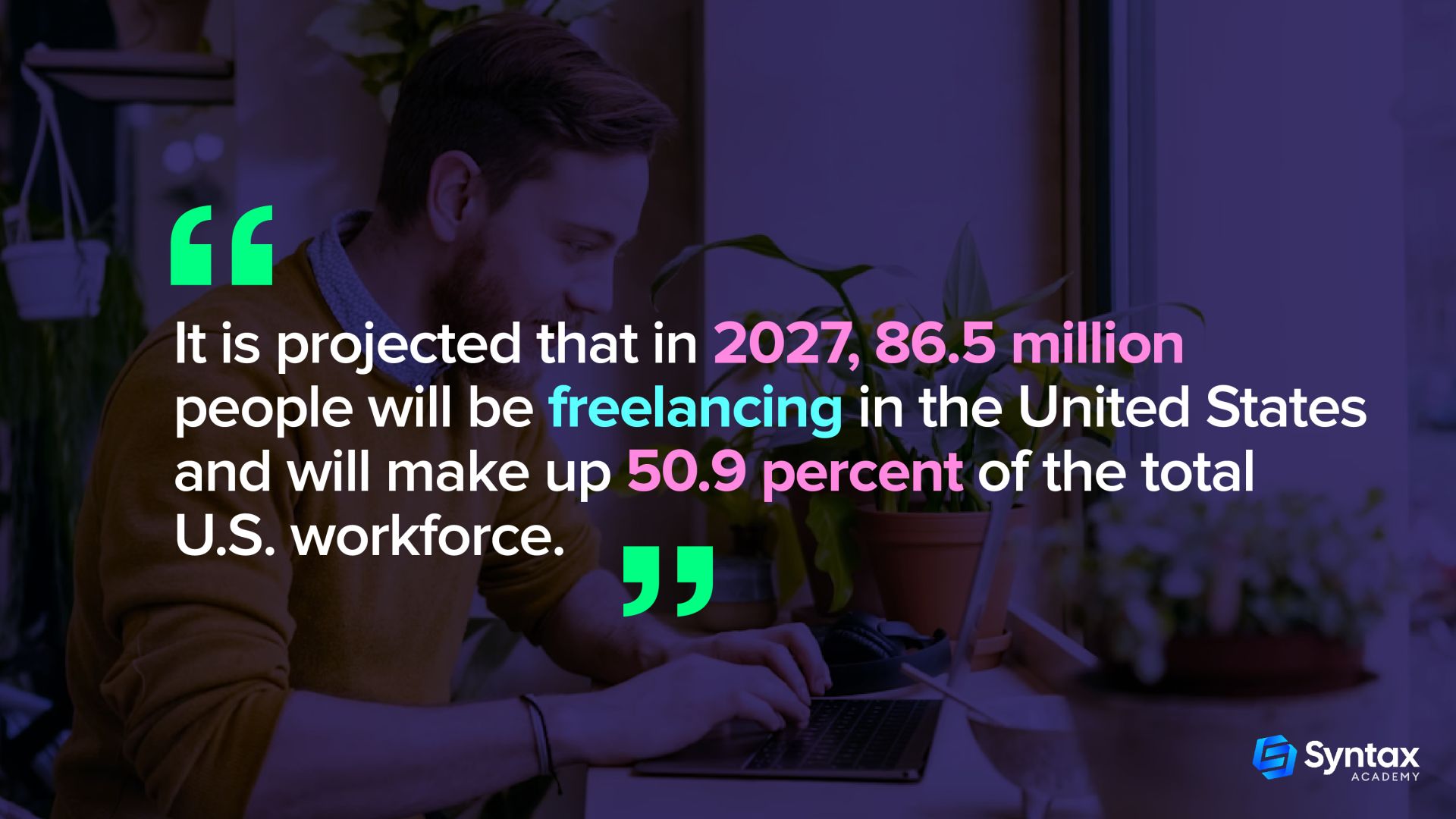
- You Choose the Projects: You don’t have to take on boring projects just because they’re assigned to you. Want to work on something exciting that aligns with your skills or interests? Go ahead and say “yes” only to what excites you.
- You Can Earn More: Freelancers, especially in tech, can often charge higher rates than regular employees. When you’re good at what you do, clients are willing to pay a premium.
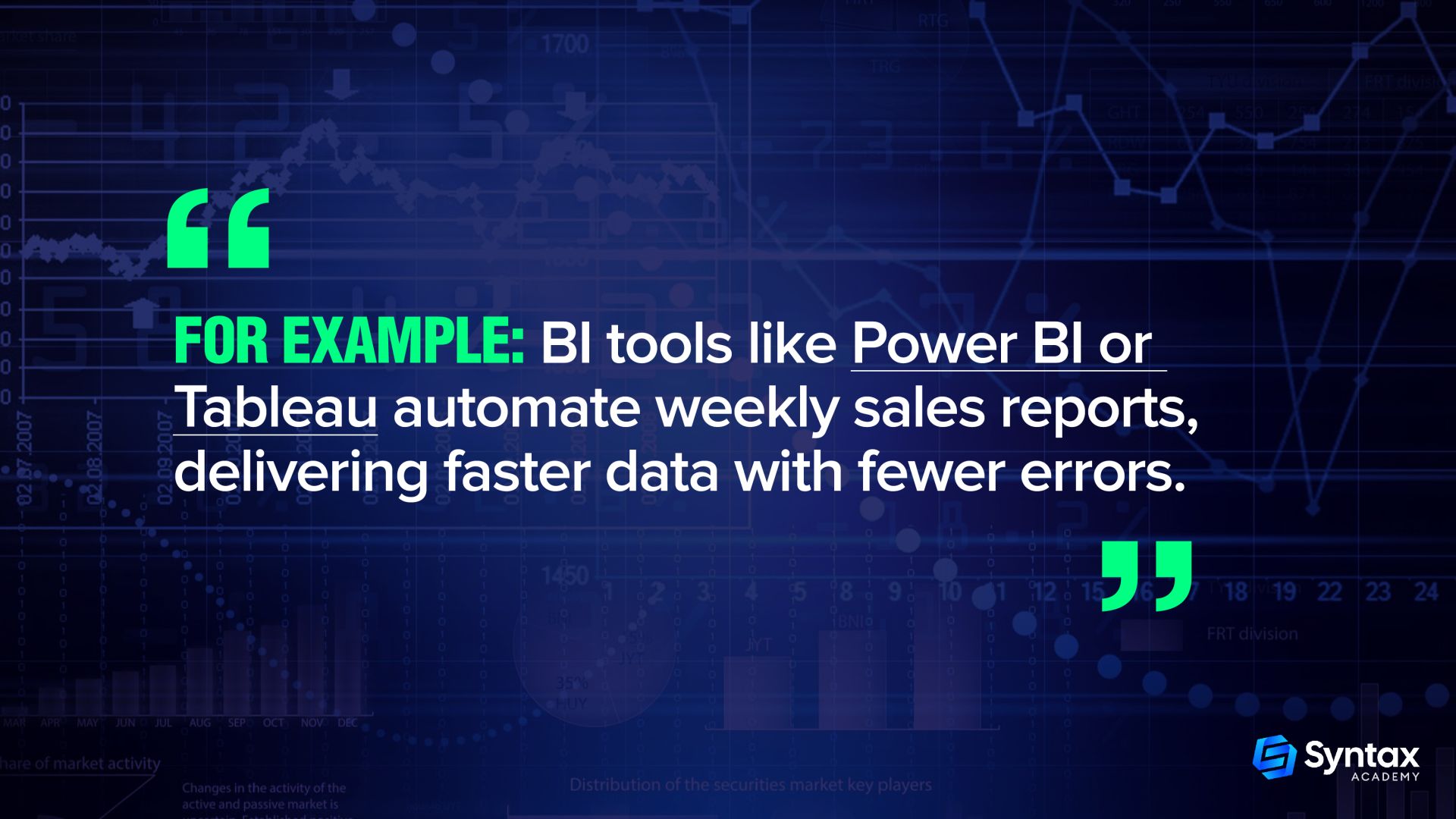
- Work from Anywhere: One of the good things about freelancing? You’re not stuck in one location. As long as you’ve got a laptop and Wi-Fi, you can work from your favorite café, a co-working space, or even a beach.
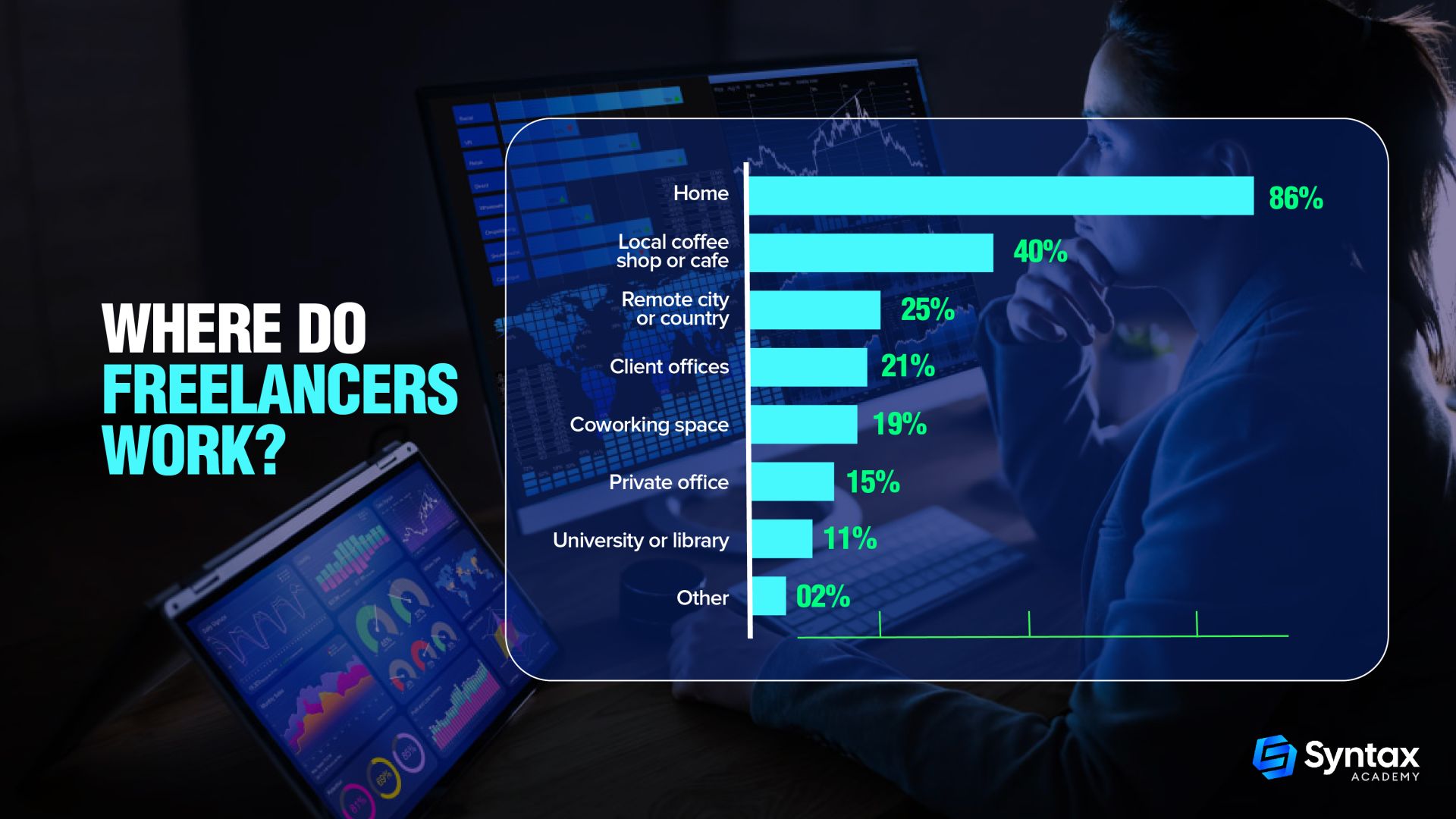
- Constant Learning: When you freelance, you’re constantly working on different projects, for different industries, with different tools. It’s an amazing way to keep your skills sharp and learn new things.
- Building Your Personal Brand: Freelancing gives you a chance to make a name for yourself. The projects you work on become part of your portfolio, and over time, you can build a reputation that attracts even more exciting opportunities.
- You Set Your Rates: Instead of being told what your salary will be, you get to decide your own worth. As you gain experience, you can increase your rates based on the value you bring to clients. And if you feel a project isn’t worth it? You can simply say “no.”
- Tax Deductions: Freelancers can take advantage of some tax deductions that full-time employees can’t. Expenses like your home office setup, software tools, and even internet bills could be deductible.
3. The Downsides/Cons of Freelancing (It’s Not Always Easy)
- Unstable Income: Unlike a regular job where you get a steady paycheck, freelancing can be a rollercoaster. Some months you’ll be swamped with work, and others might be quiet.
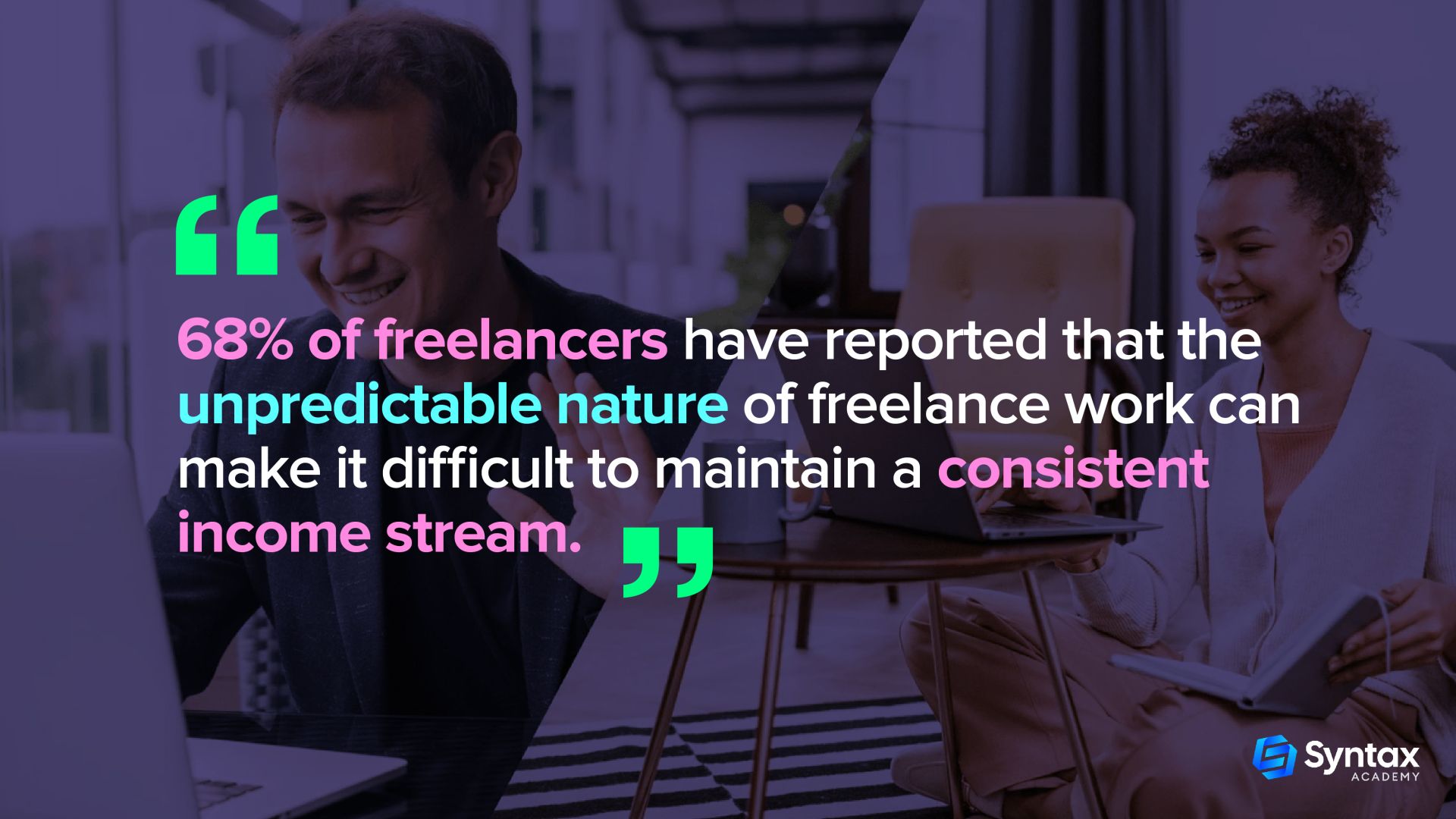
- No Job Security: You’re not an employee, so there’s no guaranteed work. Clients can end projects at any time, and you’ll need to hustle for the next gig.
- Admin Work Can Pile Up: When you freelance, you’re not just doing the tech stuff. You’ve got to handle invoices, contracts, taxes, and emails. It’s like running a mini-business. ‘
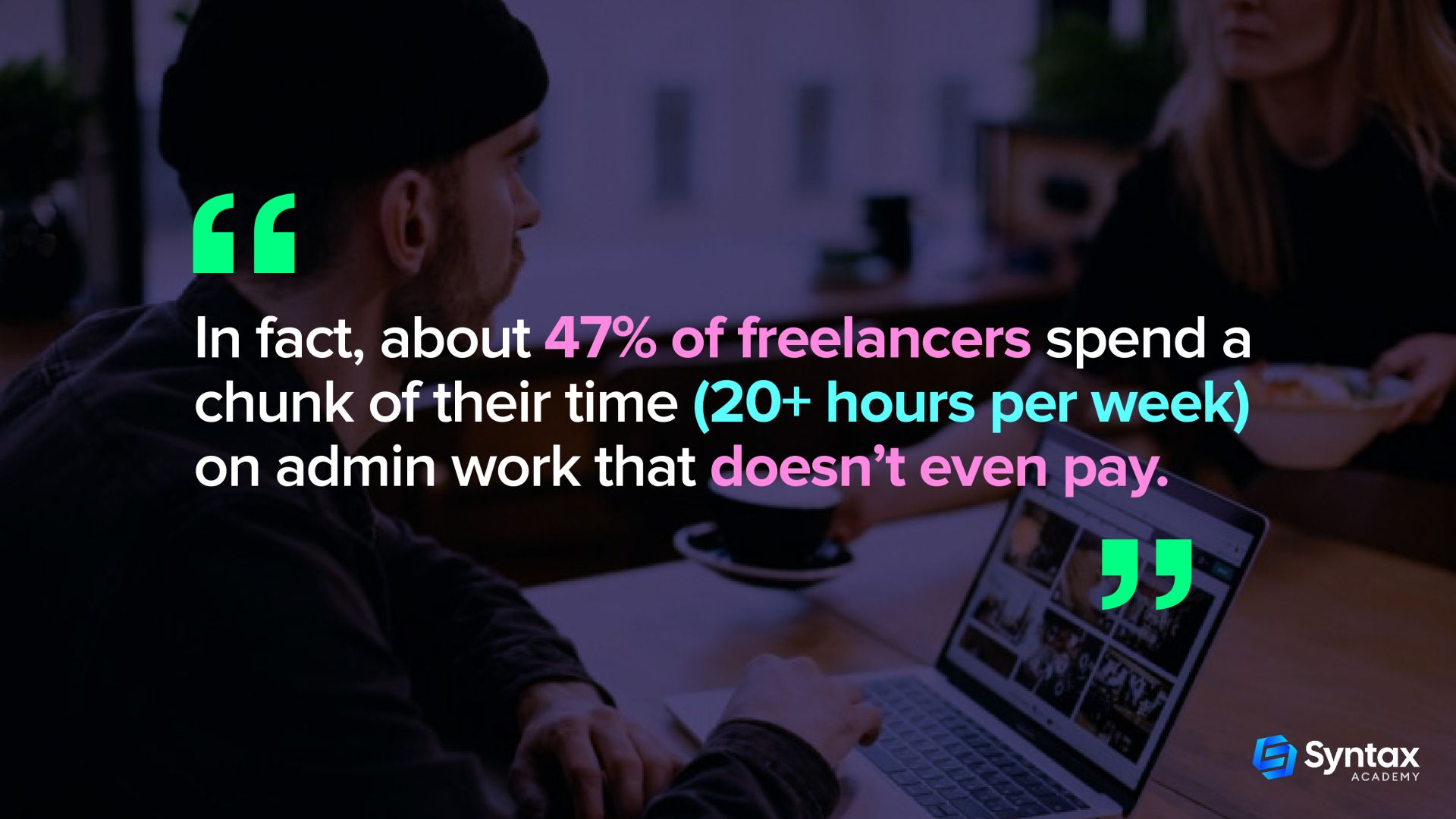
- No Benefits: Freelancers don’t get the perks that full-time employees enjoy—no health insurance, no paid vacations, no retirement plans.
- Work-Life Balance Can Blur: While freelancing gives you flexibility, it also means work can creep into your personal time. When you’re juggling multiple projects or trying to meet deadlines, it’s easy to find yourself working late into the night.
- Managing Clients is Tough: Not all clients are not easy to handle. Some might be demanding, have unclear expectations, or take ages to pay.
- You Need Self-Discipline: Without a boss or a set routine, staying motivated can be tricky. It’s easy to procrastinate when no one’s watching, and that can lead to missed deadlines.
4. So, Is Freelancing Worth It?
If you’re someone who enjoys stability, a steady paycheck, and having benefits like health insurance taken care of, then freelancing might not be the best fit. But if you’re up for the challenge and the freedom that comes with being your own boss, it can be an incredibly rewarding journey.
If you’re interested in preparing for freelancing opportunities, taking up courses offered by Syntax Academy can help you develop relevant skills in high-demand tech domains. With the right expertise, you can confidently step into the freelancing world and start building a portfolio that attracts exciting projects.

Related Article

Business Intelligence and Analytics
Top 5 Must-Have Skills for a Career in Business Intelligence and Analytics
By: Martha James
Data is the new oil, right? But what good is oil if you don’t know how to refine it? That’s where Business Intelligence (BI) and Business Analytics (BA) come in—they help businesses turn raw data into valuable insights. Whether you’re just starting out or looking to level up in these fields, knowing which skills to focus on is key to staying competitive.
Read More

Tech
Mastering the Remote Tech Job: How to Succeed Without an Office
By: Martha James
So, you’ve landed a remote job in tech. Congrats! Working from home (or wherever) can feel like a dream come true. No commute, flexible hours, and you can even wear your most comfortable clothes while you work. But let’s be real—it’s not all about the good part. Remote work comes with its own set of hurdles that can easily trip you up if you’re not prepared.
Read More

Chat GPT
Making Money with ChatGPT: Can AI Help You Side-Hustle?
By: Martha James
If you’ve ever thought about picking up a side hustle, you’re not alone. More people than ever are exploring ways to earn extra money outside their main jobs. But here’s the thing—side hustles aren’t just about picking up gigs on Uber or selling crafts on Etsy anymore. Today, AI, particularly tools like ChatGPT, is stepping into the game, helping people make money in ways we wouldn’t have thought possible just a few years ago.
Read More
Professionals from Industry Pioneers Choose
Syntax Academy for Skill Mastery
